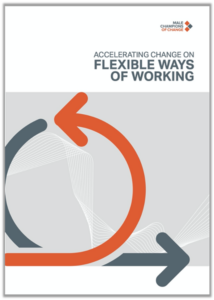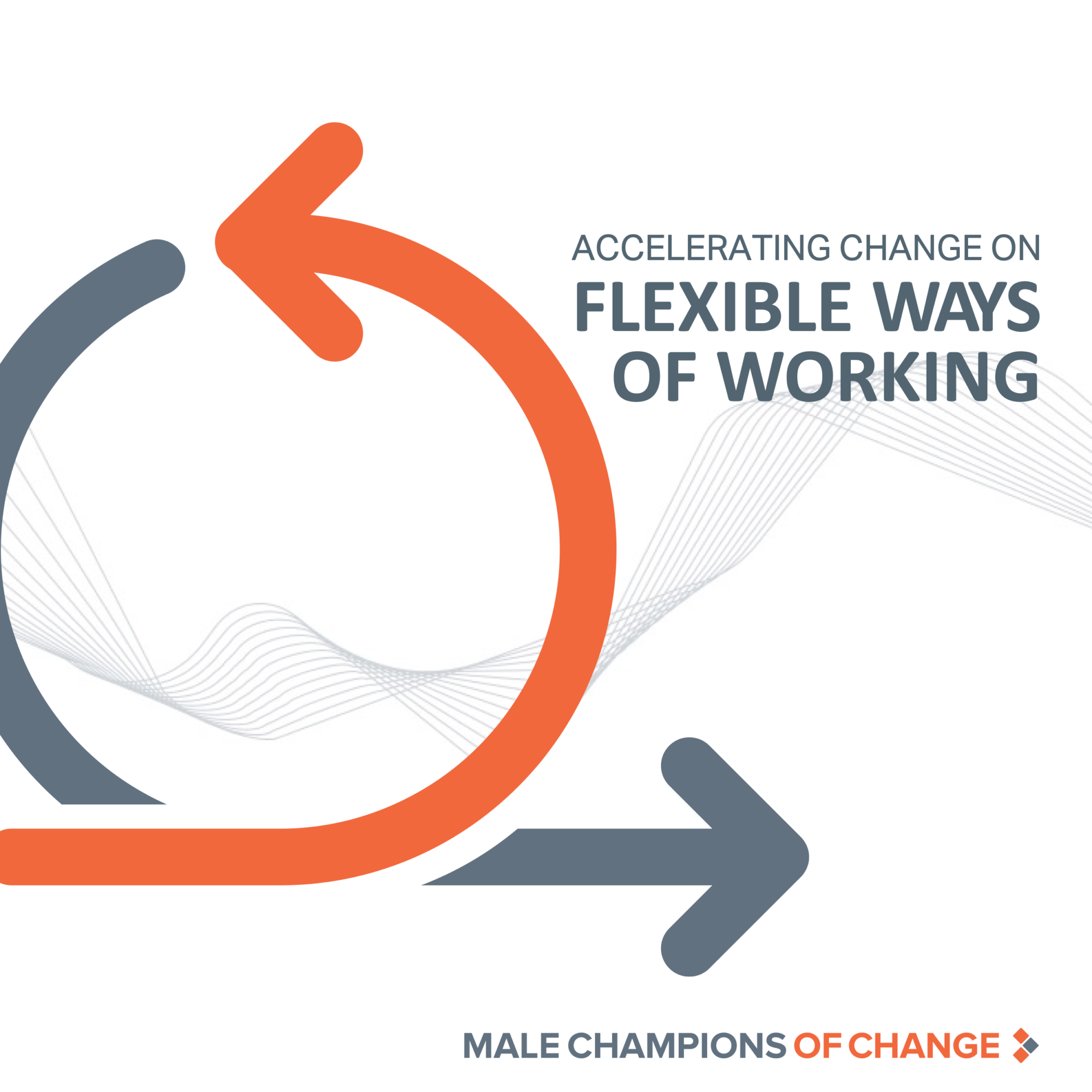 For many organisations, the disruption of COVID-19 has rewritten the business case for flexible ways of working. It has also changed the way we view how, when, where and by whom work gets done.
For many organisations, the disruption of COVID-19 has rewritten the business case for flexible ways of working. It has also changed the way we view how, when, where and by whom work gets done.
This new discussion paper from Male Champions of Change (MCC) aims to help organisations better understand the benefits of flexible ways of working and how it can be effectively implemented.
It is based on CEO insights and employee surveys taken during and after the initial lockdown period across our coalition. These showed that ongoing employee preferences are to share their time between the home and onsite workplaces, with the majority suggesting two or three days from home, or at a secondary office location, would be ideal.
Key insights:
- Flexible ways of working must be available to all to realise the benefits
- Overwhelmingly, more flexible ways of working are preferred by employees
- There are circumstances where ongoing, office-based or onsite work is a better option
- When more employees have access to, and are supported to use flexible ways of working, traditional gender stereotypes and barriers that have limited women’s engagement in the workplace can be challenged and/or dismantled.
- Employees should be rotated between in-office/onsite and remote working to avoid central workplaces becoming centres of power dominated by men and/or people without caring responsibilities.
The report supports an immediate priority of returning to the office and onsite environments (where and when safe to do so), while wholeheartedly seizing the momentum on flexible working. It envisages a future where working flexibly is fully embraced and essential to business strategy, where all flexible workers have access to stable and rewarding career paths.
For the past 10 years, the Male Champions of Change coalition has prioritised flexible work as a strategy to help achieve gender equality in the workforce. Prior to COVID-19, 88% of members were focused on mainstreaming flexible work. This experience, together with lessons on flexible working from the early stages of COVID-19 restrictions, present an unprecedented opportunity for leaders to make lasting change towards a more gender equal future of work.

